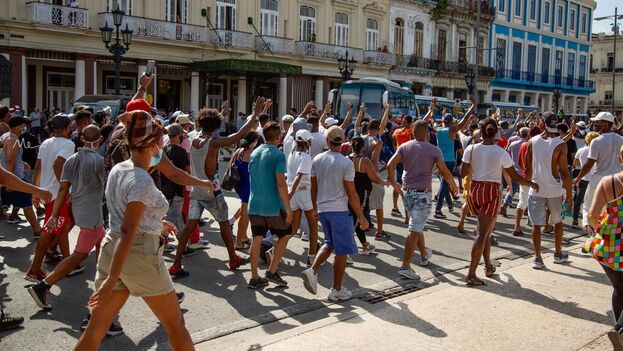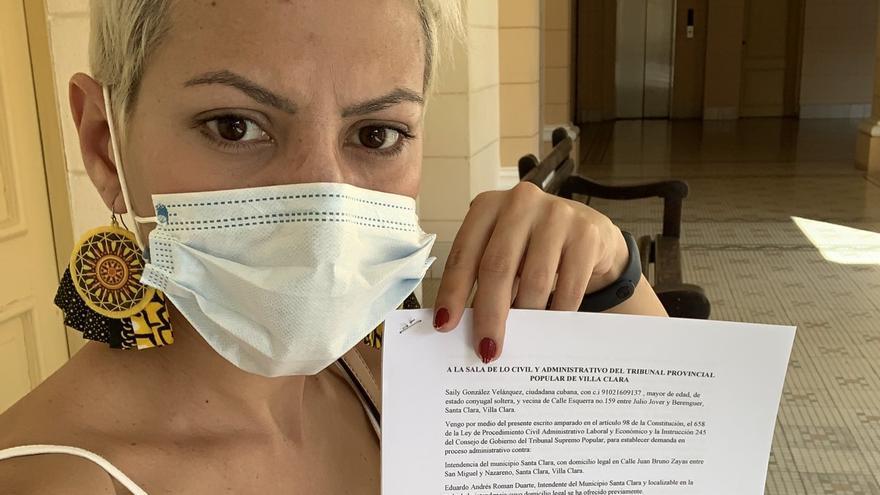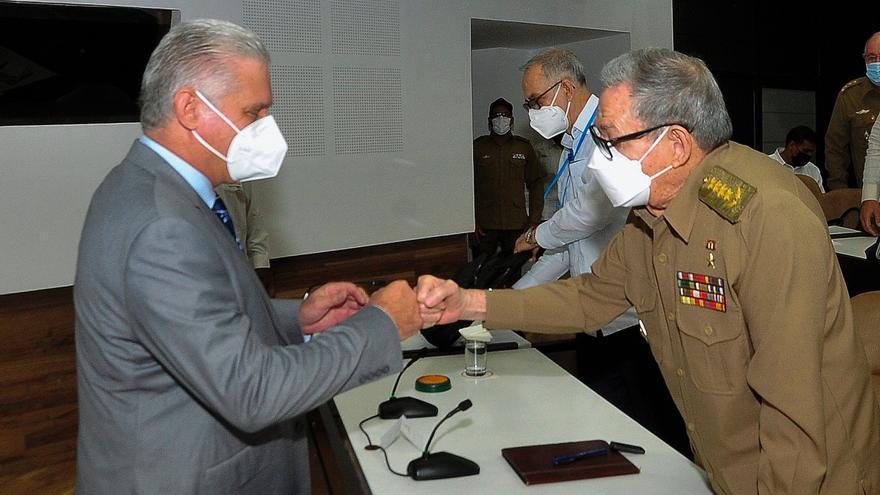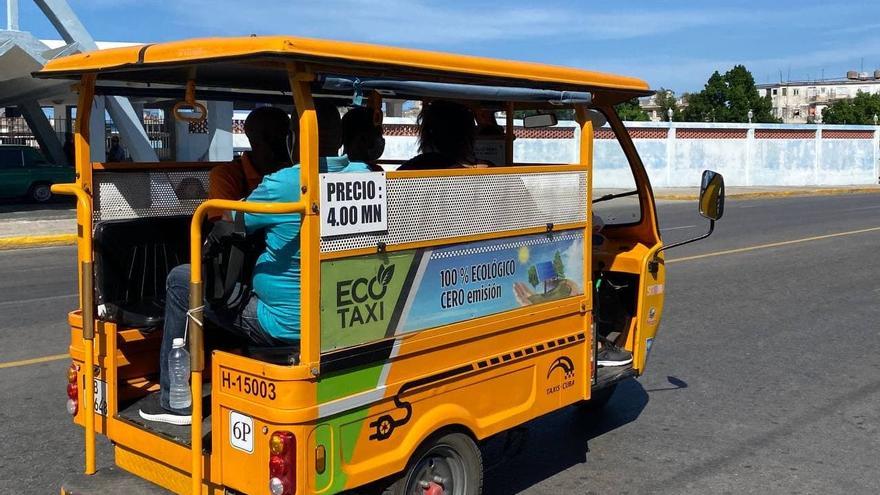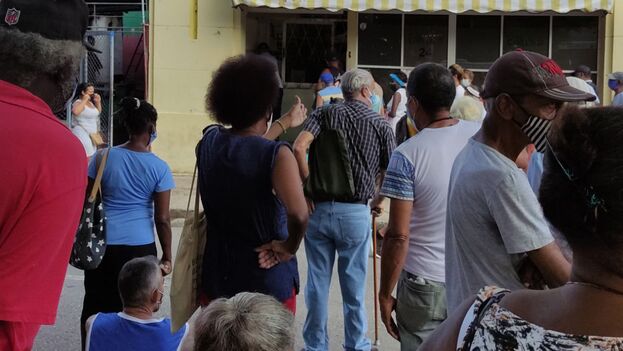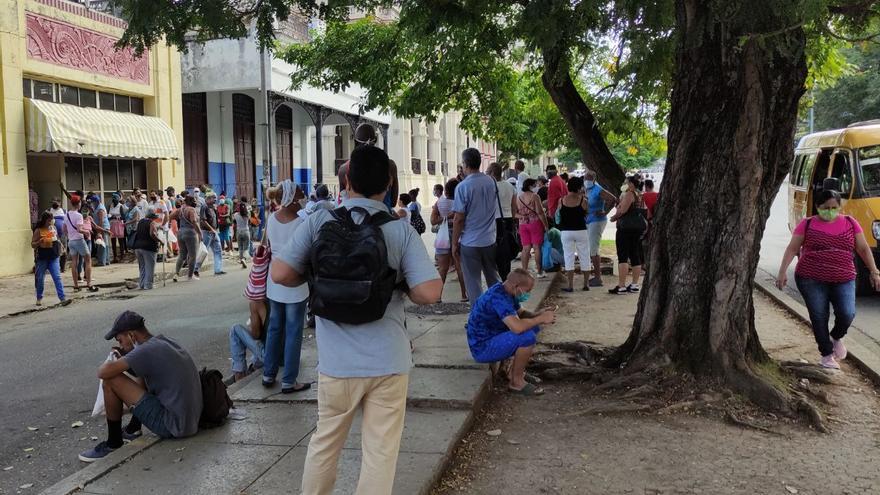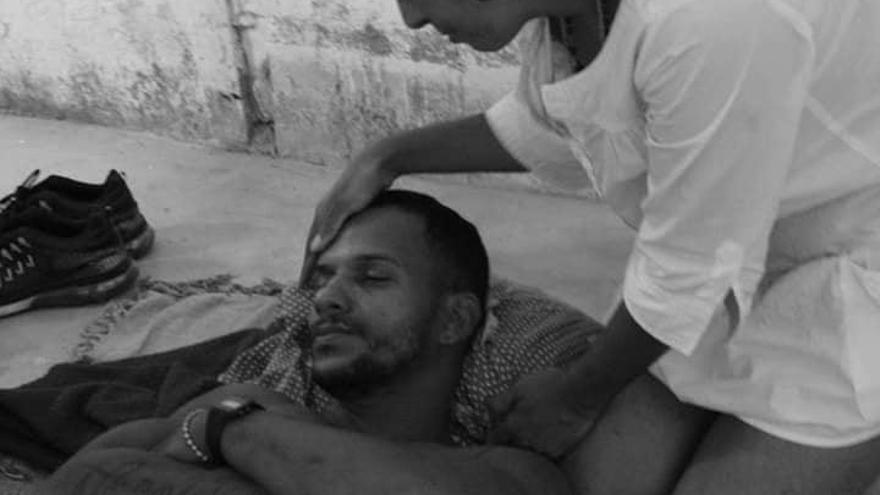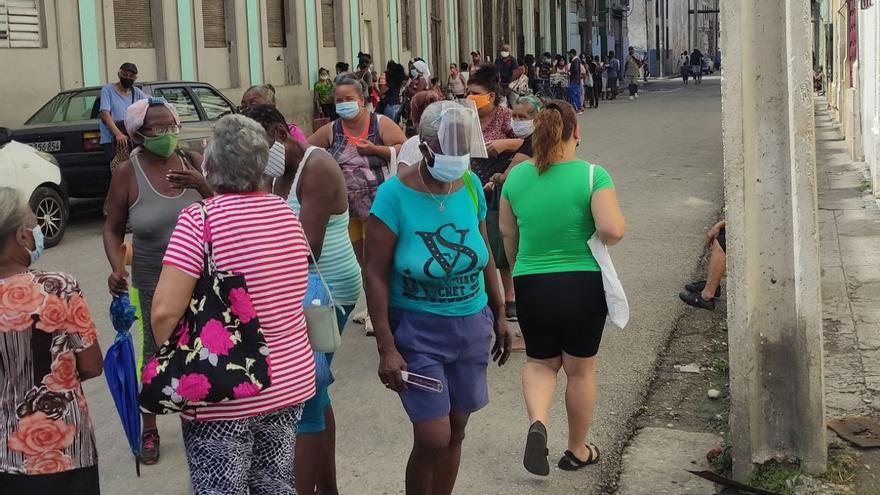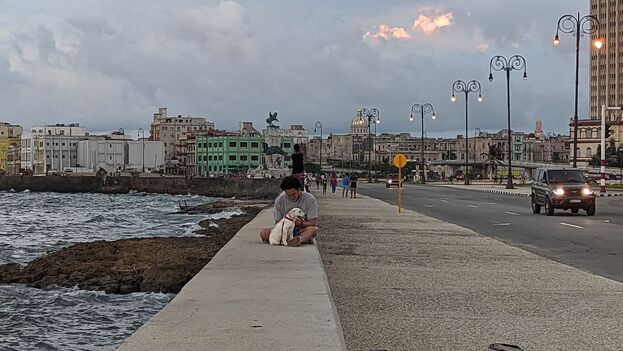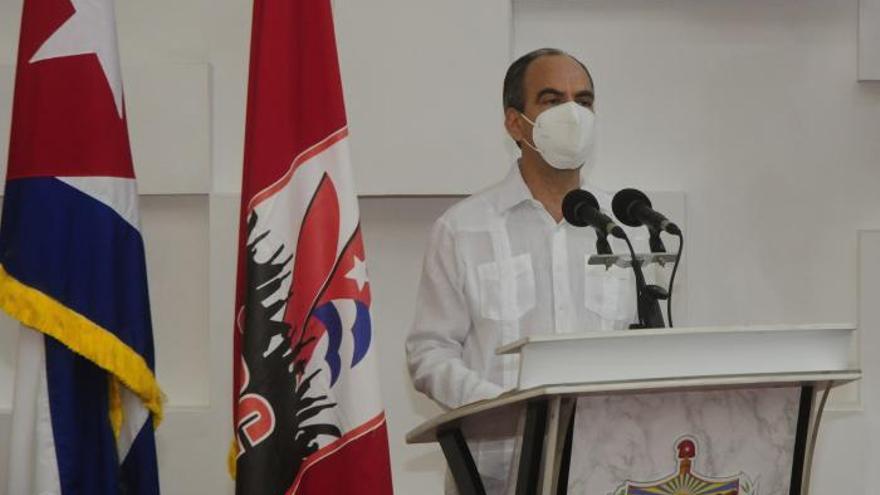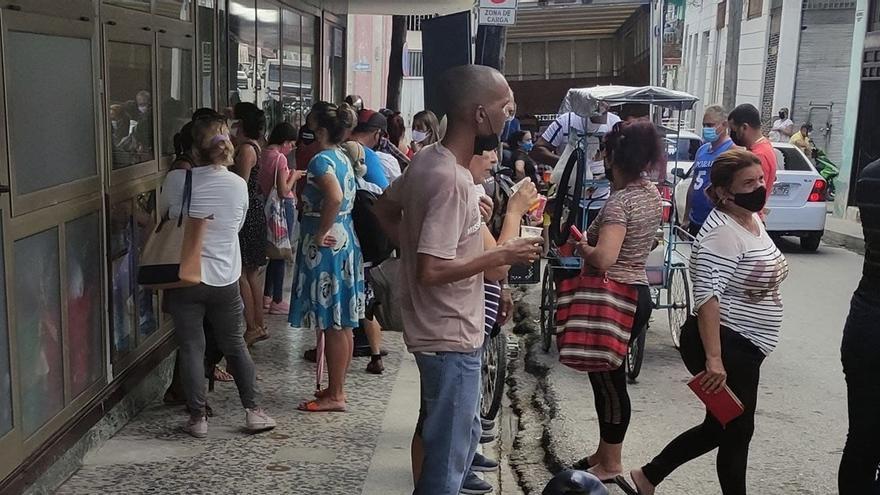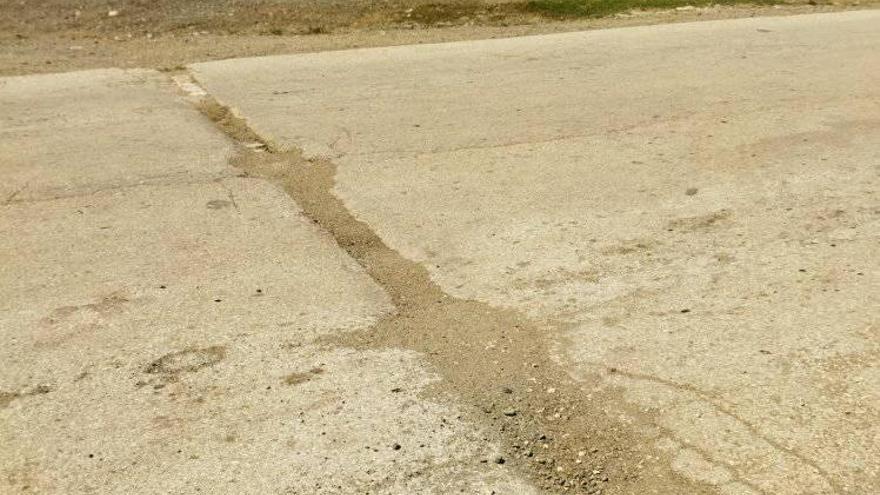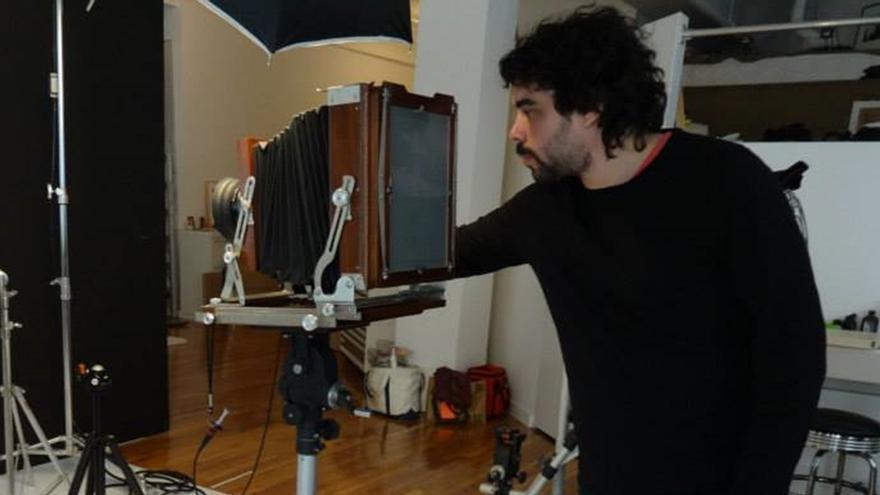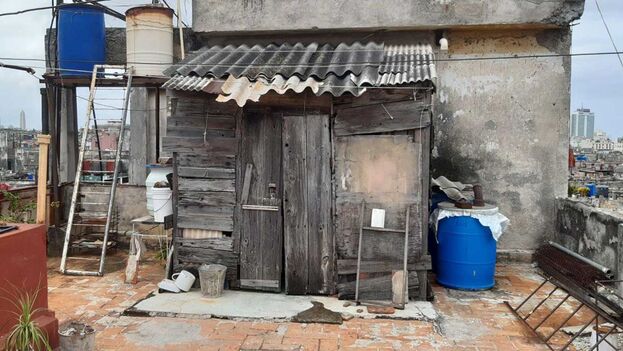
![]() 14ymedio, Natalia López Moya, Havana, 29 October 2021 — Peeling walls, cracks in the ceilings of several apartments and, above all, structural cracks keep the 21 families who live in a building on San Nicolás street near the corner with Salud, in Central Havana, in suspense. “This building was built in 1948 and has never been touched. It was reported for maintenance in 2004, architects from the community came, did the lifting and we are still waiting for them,” Miladis, one of the residents of the building, tells 14ymedio.
14ymedio, Natalia López Moya, Havana, 29 October 2021 — Peeling walls, cracks in the ceilings of several apartments and, above all, structural cracks keep the 21 families who live in a building on San Nicolás street near the corner with Salud, in Central Havana, in suspense. “This building was built in 1948 and has never been touched. It was reported for maintenance in 2004, architects from the community came, did the lifting and we are still waiting for them,” Miladis, one of the residents of the building, tells 14ymedio.
The 2019 tornado damaged the corner of a room in this Havanan’s apartment. “When I informed the municipal government, an architect came and told him that I needed to find a way to knock down the damaged wall and rebuild it, so that it would not fall into an access corridor of the building. And do you know what the architect told me? That it was my problem if a piece of concrete fell on someone’s head.”
Like Miladis, many residents of the building are willing to fix their homes, but due to the high prices of construction materials — due, among other causes, to the inflation that the country is experiencing — they do not have the means to carry out repair work independently. continue reading
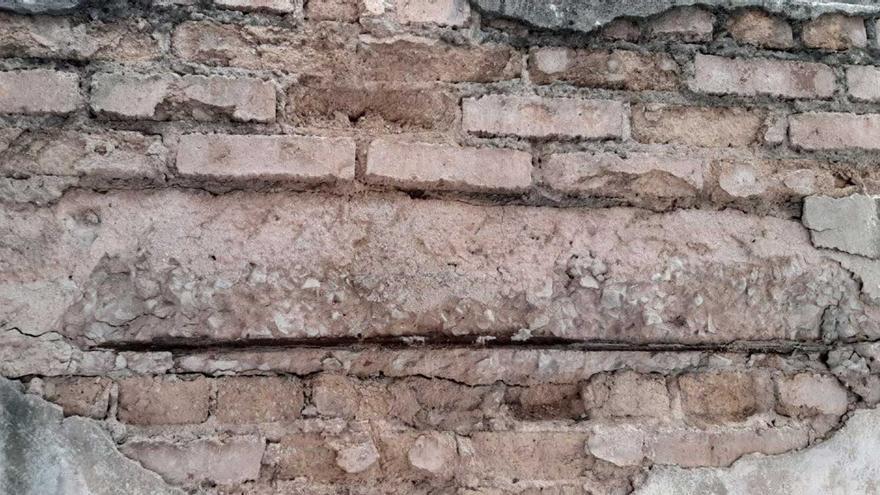
The problem is repeated throughout the neighborhood, with the exception of some houses where the recent painting of the facade reveals a private business, a private guest house that is preparing for the arrival of tourists or the existence of an emigrant in the family who sends those dollars with which you can still get some products to repair homes.
However, Miladis had to make urgent repairs because, over time, water from the downpours began to seep through the same room that was damaged in the tornado. “I had to sacrifice myself and I had a hard time with food to be able to buy a couple of bags of cement and fix that corner,” she says. “It was a repair on the outside of the apartment and whoever did the maintenance had to expose himself to the danger of hanging himself in order to fix the damaged area.”
For about two years, various building materials have disappeared from state stores. The only option to get the products at the moment is the informal market, where for example a bag of cement exceeds 1,000 pesos, or go to the foreign currency stores, where it costs 10 dollars and is scarce.
The fear that her apartment will collapse is not only what worries Miladis the most: the other apartments are in the same situation and the structures of the entire property have begun to give way. “The building is exposed to the saltpeter, its proximity to the sea makes everything worse.” Indeed, the buildings near the Malecón suffer especially the effects of the sea and none of the various government programs have solved the problem of frequent collapses.
Across from Miladis’ building there was an apartment on the second floor in very poor condition and its owner had to demolish it with his own efforts, because he never received help from the capital’s government, Miladis recalls. “It was a scandal because the neighbor threw all the rubble onto the street and they wanted to fine him, but he was between a rock and hard place and the authorities had to send for the rubble to be collected.”
As in the case of Miladis, there are thousands in the capital, which will be 502 years old on November 15. When asked what solution she saw for his building, she was blunt in her answer: “What is needed is another government.”
____________
COLLABORATE WITH OUR WORK: The 14ymedio team is committed to practicing serious journalism that reflects Cuba’s reality in all its depth. Thank you for joining us on this long journey. We invite you to continue supporting us by becoming a member of 14ymedio now. Together we can continue transforming journalism in Cuba.

